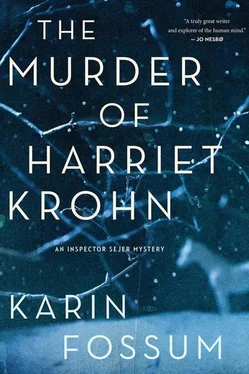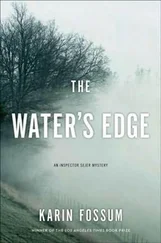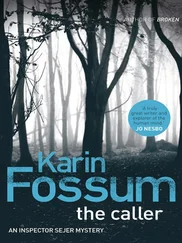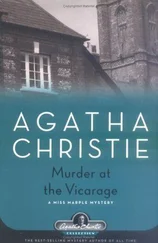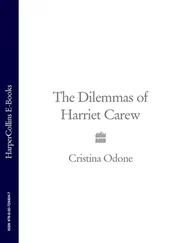He finds himself nodding. He hears her go out to the kitchen and raise the lid of the chest. He gets up heavily from his chair, but his whole being is rigid with fear. He’s remembered something, but he can’t move quickly enough. At last he makes it out to the kitchen. Julie is looking at him in astonishment.
“This is my old gym bag, isn’t it? Whatever have you got inside it?”
He makes no reply, trying to think clearly, but his brain is foggy. She opens the bag and peers into it.
“Jewelry?” she says in surprise.
He starts nodding vigorously, still searching for words, for some kind of explanation. But no words come. There’s only his thudding heart and the feeling of unreality, like in a film. She picks them up in turn, one by one. Harriet’s bracelet and rings, and the brooches and string of pearls. She places them on the table. Again she looks at him uncertainly, as if she’s suddenly been given a clue. It makes her face darker. Charlo twists his mouth into a stiff smile, his mind in an uproar.
“Yes, they were Grandma’s,” he says, and feels his head moving heavily up and down.
“But Grandma isn’t dead,” Julie says. She lifts the largest brooch, the cameo. Turns it this way and that in the light.
“Well, no. But she gave them to me. I got her old silverware, which I told you about, and which I sold. And these bits of jewelry.”
“But I’ve never seen them before,” she says probingly.
Charlo curses the physiological processes that are turning his cheeks red.
“They’re things she’s never worn,” he explains in a panic. “That’s why you’ve never seen them. So she gave them to me. As an advance on her estate. They’re not worth anything,” he adds quickly.
“But why have you got them in the chest?” she asks. “In my gym bag?” In his confusion, he shakes his head. He finds no explanation. He thinks he can hear the sound of cracking ice that he really has fallen through badly. The damage must be repaired, but he doesn’t know how.
“Well, you know,” he says, attempting a self-deprecatory laugh, “I’ve always been a scatterbrain.” His laughter seems to reverberate around the room.
She nods in agreement. But something has made her uneasy. He can see that quite plainly. He doesn’t know what to do about it, but he knows that he’s got to smooth it over and make her forget.
“Here,” he says, diving into the chest. His hand emerges clutching a tin. “This’ll be good for your boots. I’ll find you a cloth.”
She sits down on the floor with the boots, still silent. The jewelry is on display on the table. He can’t bring himself to touch it. He feels he’d like to talk the entire thing away, as he rummages in the cupboard for something she can use as a cloth. He finds an old pair of worn-out underpants and cuts them in half. Hands her the cotton material. She takes it hesitantly.
“It’s a long time since I went to the nursing home,” she says. “I feel bad about it. Perhaps I’ll go and visit her.”
“Don’t mention the jewelry,” he puts in quickly. “It’ll only make her really confused.”
“Will it?”
She dips the cloth in the polish.
“You know she can’t remember things from one minute to the next. What she’s said or done.”
She’s still taciturn. She polishes the boots until they shine, but there’s a troubled furrow between her eyes. Charlo tries to joke and laugh, without really succeeding. But she listens and responds. It’ll all be fine now. No solemnity, no suspicions, no deceit.
He reads Julie’s needs and desires before she can give them voice. He’s always an instant ahead of her, watchful, ready. When she rides, he anticipates the precise moment when she begins to get too hot. Before she says anything, he runs out and takes her jacket. He notices when Crazy is tired or uncooperative, and then he’ll scamper out with a whip, so she can ginger him up a bit. Whenever she’s thirsty, he knows and brings her something to drink. He sits on a chair at the far end of the ring with the yellow rug across his knees, like some faithful, aged crone. But he does his own work first. He repairs and renews and paints. He mends broken panes and removes loads of horse muck with the tractor. He gets feed from the outbuilding and checks the water troughs and the lighting. He changes light bulbs and sets mousetraps. He sweeps the stable passages and clears the snow away from the yard in front of the ring. He spreads a broad path of gravel from the stables, so the horses won’t slip and break their legs.
Each day at three o’clock he’s waiting outside the school. Julie comes in all weather. She throws herself into her work and gets Crazy to master the difficult exercises. Coordinating the great, muscular body to obey her smallest instruction. Charlo puts up jumps for her and holds his breath as the horse canters toward them. His own body moves in sympathy, trying to will her over. The landing is thunderous, and Julie clings to the horse with her calves, jumping again and again. He’s enjoying these days, so he doesn’t look back. The fact that he experiences a few happy days fills him with a deep contentment.
It’s January and very cold. Julie rides in thermal overalls and Crazy’s large body can’t get properly warm. He’s stubborn and stiff. Julie is tired, so Charlo tries to slow her down.
“Put him back in his box,” he suggests. “Today we can just clean it out and leave things at that. And you can take a day off. It doesn’t matter if he stays in for one day.”
She shakes her head emphatically.
“That’s out of the question. Horses have to have exercise every single day,” she says categorically.
He praises and encourages, and comforts her when she complains. He makes up for all his sins. And she clings to him as she did when she was small. My daughter, he thinks, the lovely redhead, the veterinary surgeon.
It is on one of these icy January days that he suffers another strange episode. Frightening and incomprehensible. He’s helping Julie muck out. He throws himself into the task eagerly with the shavings fork and feels the muscles working in his arms. Now that he’s got going, he mucks out the box next door as well. And the one next to that, too. He works so hard that he makes the shavings fly. The wheelbarrow fills up and is heavy with horse muck. He wipes the sweat from his brow and his shirt feels cold down his back. He goes over and opens the hatch. Returns for the wheelbarrow, grips the handles, and begins wheeling it down the passage. Just then, one of his legs gives way and he pitches violently forward. His face is thrust into the damp droppings. The wheelbarrow tips over sideways, its contents spilling over his head. Confused, he lies there kicking with the acrid stench of muck in his nostrils. He wipes his face in bewilderment. The muck is everywhere: in his eyes and his mouth, and even down the back of his neck.
Desperately he attempts to gather his wits. Just then he hears Julie’s laughter. He’s never heard this laugh before. It cascades heartfelt and bright over his head, and he thinks how comic he must look, lying on the floor with the wheelbarrow over him. And Julie just can’t stop laughing. For his part, he’s dumb. Frantically he tries to stand up to right the wheelbarrow. Julie is unable to help him; she’s clutching a broom and laughing so much it echoes around the stable. At last her laughter subsides into silence. Just a few little gasps of mirth. She stops because he’s silent and struggling to get to his feet. She goes over to him, takes hold of the wheelbarrow with both hands, and turns it over.
“Oh, Dad,” she says.
There are still some traces of laughter in her voice, but also something else, a note of anxiety. Because he’s not laughing, too.
Читать дальше
